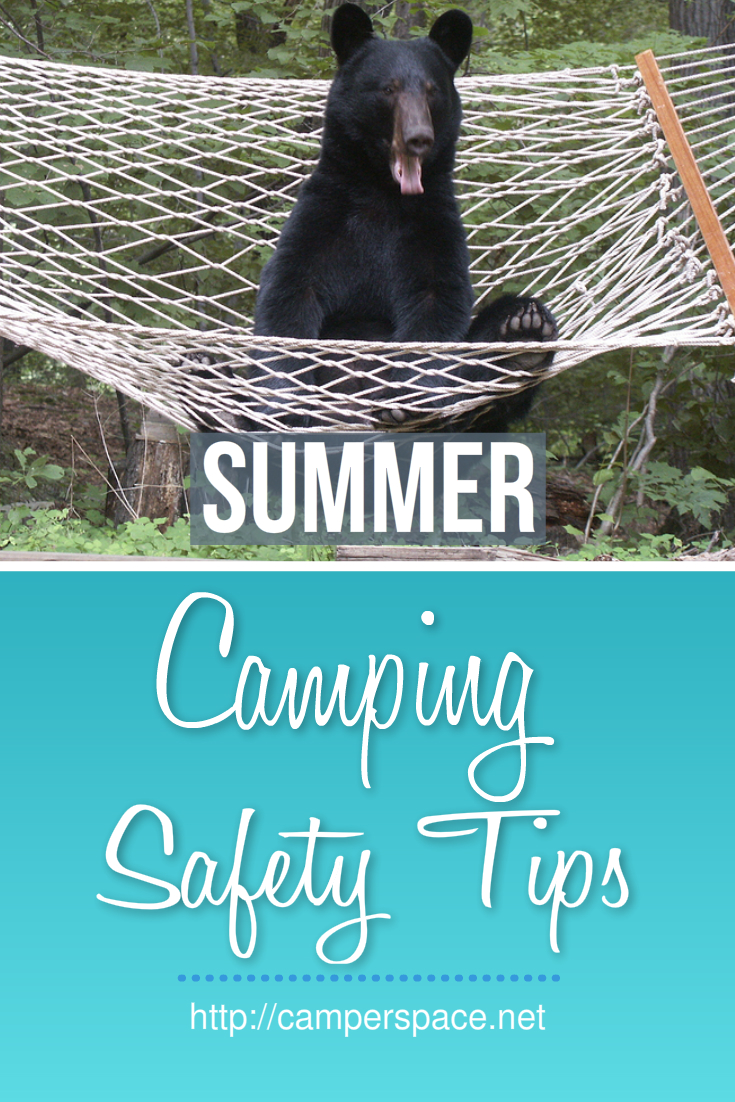Camping can be a wonderful experience enjoying the outdoors and getting away from the stress and fast pace of everyday life. However, it is essential to know what the safety requirements are to avoid accidents which could ruin a camping trip. The simple guidelines below will ensure a safe and enjoyable trip.
FIRE HAZARDS
 Check the rules regarding open fires and barbecues at the campsite. Sometimes they are not allowed at all and at some sites, they are restricted to certain areas.
Check the rules regarding open fires and barbecues at the campsite. Sometimes they are not allowed at all and at some sites, they are restricted to certain areas.- Position tents and any flammable materials far away from open fires, barbecues, and cooking areas as a sudden increase in wind can cause sparks to ignite flammable materials and cause a fire. Tents should be pitched well apart to prevent the risk of fire spreading. Be sure they are at least six meters or more apart.
- Avoid cooking inside a tent at all costs as even fire-proof tents may burn and interior items may catch fire. The small space inside a tent can easily cause cooking equipment to be knocked over and cause a fire.
- Store gas canisters and stoves outside the tent.
- Store lighters and matches in a waterproof container out of the reach of children.
- Avoid the use of naked flames such as candles, gas lights and cigarette lighters for lighting the way, and certainly not inside a tent. Lanterns or solar lights are the only safe way to illuminate a tent.
- Before retiring for the night, make a thorough check of the campsite to ensure that all fires are properly extinguished with no glowing embers, check that all gas lamps are put out and that all stoves are switched off.
- Draw up an emergency fire escape plan and go through a drill with all campers before going on a trip. At the camping site, have a quick refresher and establish where the nearest fire extinguishers and water sources are.
GENERAL CAMPING SAFETY TIPS
- Brightly colored guy ropes or fluorescent tags attached to tent ropes and other dangerous areas will prevent tripping over them in the dark.
- Plan to arrive at the campsite well before sunset to avoid pitching a tent in the dark. Set out all equipment and check the overall layout to ensure that there are no dangers and risks.
- If you are new at camping, practice pitching the tent before you go on a trip to avoid stress.
- Make a camping list and laminate it to ensure that the basics are packed to avoid leaving behind essential items.
- Avoid pitching a tent in dangerous areas such as under a tree to avoid falling branches, or on the banks of a lake or river where children are in danger.
- Ensure that the guy ropes of your tent are not obstructing a walkway through the camping site.
- Familiarize yourself with the layout of the campsite and check the whereabouts of swimming pools, river embankments, lakesides, and any other areas that may be dangerous to children.
- Ensure that children are told the rules of safe camping and where they are allowed to go on their own and where not to go.
Many serious accidents can be avoided with a few summer camping safety tips and statistics show that most accidents on vacations usually happen on the first day when children can become overwhelmed by distractions and excitement. Ensure adequate supervision of young children and be vigilant about where they are at all times.

